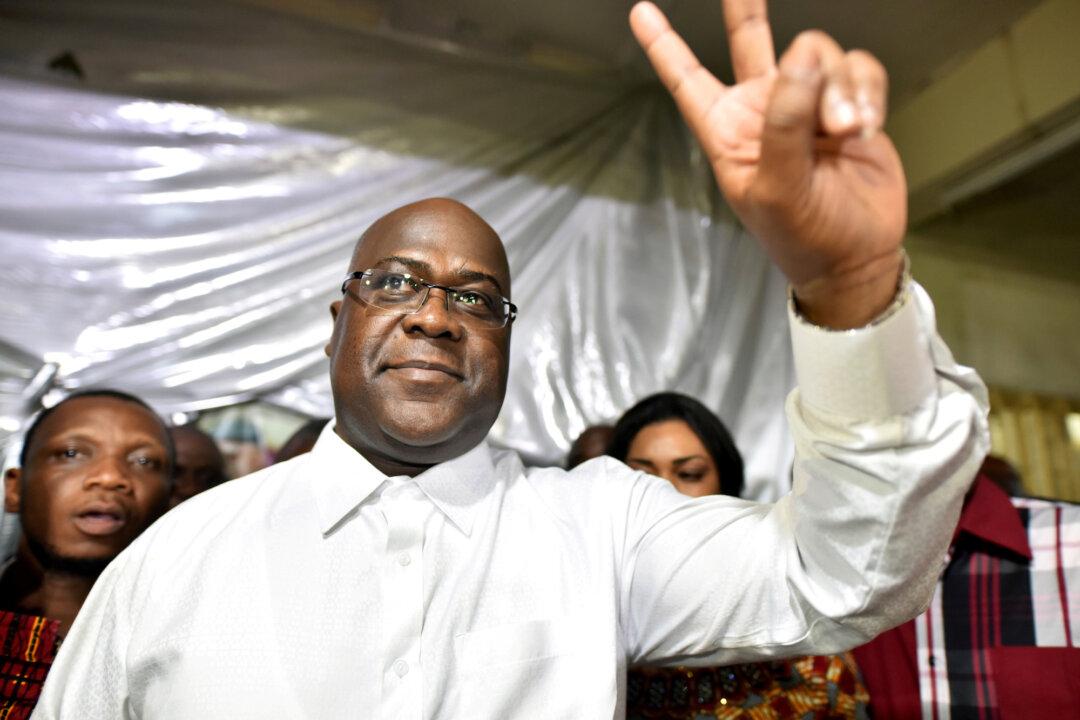KINSHASA/WASHINGTON—Democratic Republic of Congo’s President Felix Tshisekedi won important endorsements from the United States and two African neighbors as international acceptance of his disputed election win grew on Jan. 23.
Congo’s highest court certified opposition leader Tshisekedi on Jan. 20 as the winner of the Dec. 30 poll despite widespread doubts over the credibility of the result.





